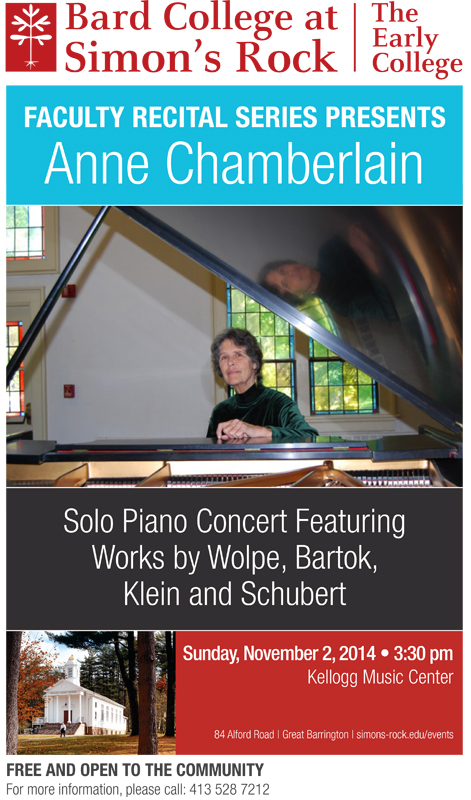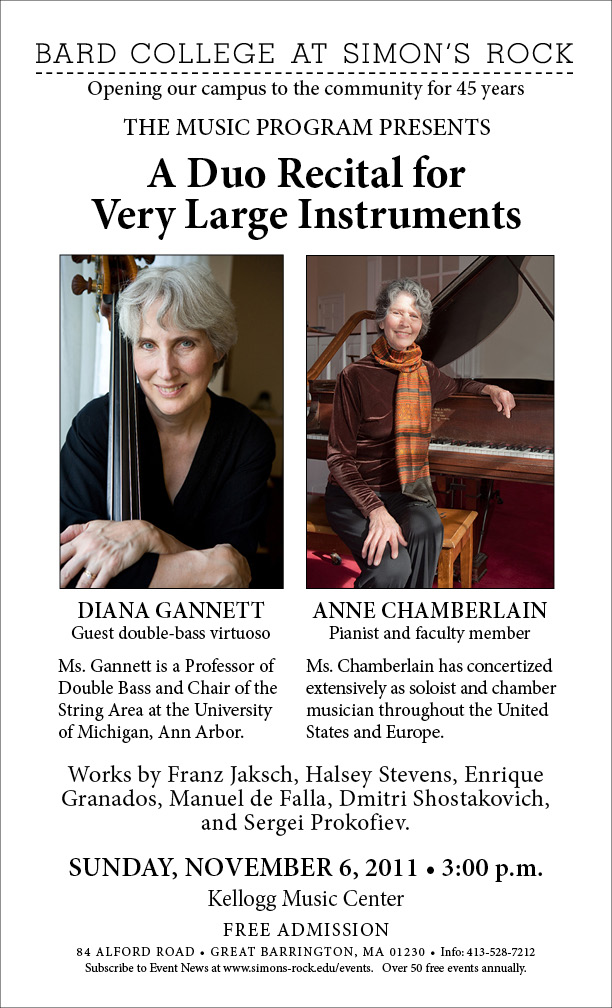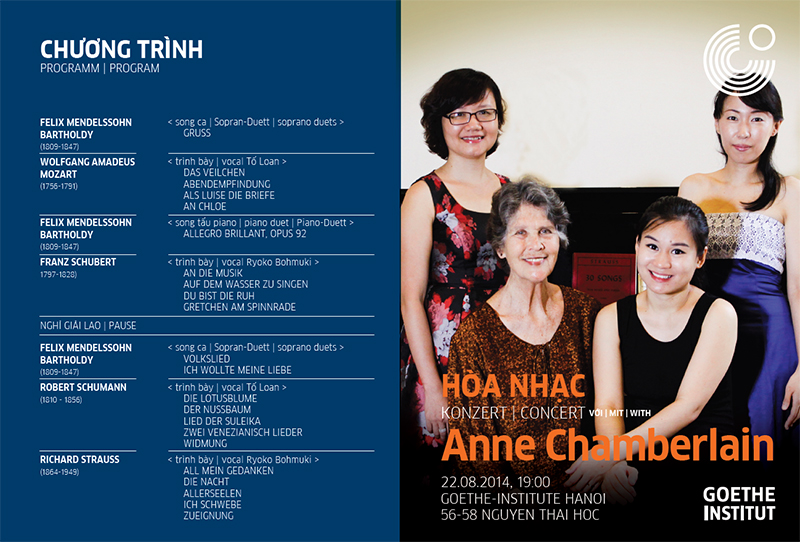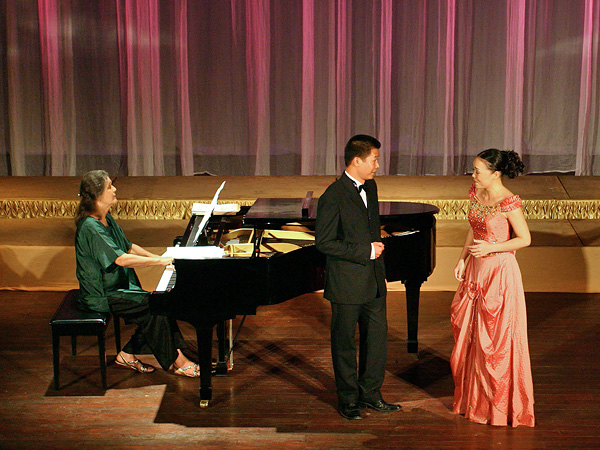  Anne Chamberlain has concertized extensively as soloist and chamber musician throughout the United States and Europe. Her numerous performances have included concerts at Alice Tully Hall and Town Hall in New York City, as well as appearances at other major halls, music festivals and universities, where she has premiered many works by her contemporaries. The Portland (Maine) Concert Association awarded Ms. Chamberlain the John Knowles Paine Award in recognition of her performances of American music of the late 20th Century.
Ms. Chamberlain was born in New York City and studied for six years at the Juilliard School where she was mentored by Beveridge Webster. She went on to graduate from the Oberlin Conservatory of Music, and returned to Juilliard for further work with Mr. Webster. For thirty years Ms. Chamberlain taught piano students at Bard College at Simon's Rock in Great Barrington, Massachusetts. During this time she was also the Music Director at the United Church of Christ in Cornwall, Connecticut.  "Anne Chamberlain, a pianist with the technical tools and intellectual acuity necessary to play 20th century music well, did not let her century down in her recital at Alice Tully Hall. Early or late composers found in the tall young artist a persuasive advocate." |
